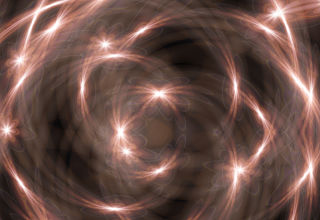
Blog
Stranger
Than
Materialism
By Christopher McNerney
In 2013, the philosopher Thomas Nagel rocked the discipline of philosophy with the release of his book, Mind and Cosmos: Why the Materialist Neo-Darwinian Conception of Nature Is Almost Certainly False. Nagel, no friend of theism, argued “if the mental things arising from the minds of living things are a distinct realm of existence, then strictly physical theories about the origins of life, such as Darwinian theory, cannot be entirely correct.*” This argument sent shockwaves throughout academia with theists celebrating the fact that a well-known atheist had struck a deathblow to the theory of evolution, while the new atheists largely lamented this new writing from a brilliant mind that seemed to have gone astray from what every rational mind now knows to be true.
Materialism is a foundational belief for the new atheists- that we are merely bodies, composed of cells that have come together after billions of years of random mutations which have brought us from a single-celled organism to the complex men and women that now roam the earth. But Nagel was not alone in his struggle to understand our world and experiences solely through a materialist lens. One of the New Atheists shared a similar struggle. In the book Mortality, a posthumous collection of essays, Christopher Hitchens wrote:
Always prided myself on my reasoning faculty and my stoic materialism. I don’t have a body, I am a body. Yet consciously and regularly acted as if this was not true, or as if an exception would be made in my case.**
In the midst of his battle with esophageal cancer, one of the central doctrines of his life no longer seemed as tenable as it had been when he was healthy.
It is this struggle with the fundamental nature of humanity, that the new Marvel film Dr. Strange offers a point of contact with our non-believing friends to discuss. Though it is a high-budget, candy coated piece of blockbuster entertainment, it is also the first superhero film that directly confronts the materialist view of creation that is so predominant in our culture today.
The film tells the story of Stephen Strange, a talented neurosurgeon that has a perfect record of saving his patients. But with great talent comes great arrogance and despite his skills as a doctor, his life is defined by two things: his skills on the operating table and the numerous awards and accolades that accompany his unique talent. Sadly, Dr. Strange does not have many close relationships, his life is his work. But that is all about to change. A devastating car accident causes irreparable damage to the most important tool in his surgical arsenal- effective use of his hands. Due to extensive nerve damage, Strange is unable to perform surgeries, the one thing he spent his whole professional life doing, and the very thing that defined him and gave his life meaning. Without surgery, he no longer has a reason for living. He loses interest in the things he held most dear, including a past romantic partner who is unable to provide him with any useful consolation.
Dr. Strange is unwilling to accept that his career is over and he goes to great lengths to correct the damage that has been done to his hands. However, despite cutting-edge treatments, nothing provides healing. Because he is unwilling to contemplate life apart from practicing medicine, he eventually finds himself at an ancient temple in Nepal, where he encounters the Ancient One. She challenges his worldview, explaining to him that the world he sees and the world as it really is are quite different from one another. Borrowing from the ancient parable of the blind men and the elephant, she argues that what he sees is only a small part of a much larger whole. He is a man peering through a small keyhole, convinced he has seen the entire picture. Strange is at first dismissive until he is clearly shown by the Ancient One that he is not only arrogant, but completely wrong about the world he inhabits. Accepting that he will never again be a neurosurgeon, Strange leaves the world he once knew and enters into a much larger universe, one where his initial loss will lead to a life of much greater significance. While his work as a surgeon would always have been limited to individual patients, his work as a superhero will impact whole people groups.
As Christians, we must always be cautious about the extent that we draw parallels between popular films and gospel truths. At the same time we live in a culture that absorbs popular myths, especially that of the superhero. We would be foolish to not engage in conversation with our friends and neighbors when the stories they are being told lend themselves to confronting the truth only found in scripture. What Dr. Strange most clearly offers is an entertaining and yet significant challenge to a world that can be fully explained by science. As Christians, we believe the world can only be fully explained by God, and as his creatures we will always be limited in the depths of our understanding. We are to be ever dependent on what He has revealed to us through His creation and in His word. There is a whole world that remains real and yet unseen to the believer. The Christian struggles not only with the obstacles we see in this world, “but against the rulers, against the authorities, against the cosmic powers over this present darkness, against the spiritual forces of evil in the heavenly places.” (Eph 6:12)
Dr. Strange also presents us with a story of conversion. One in which someone from outside of Stephen Strange’s life confronts him and opens his eyes to the world in its fullest reality. Thomas Nagel and Christopher Hitchens found materialism lacking in its ability to fully account for the human experience, and by the end of the film so does Dr. Strange. As Christians, we are also the result of a radical conversion experience. We can agree that left to our own devices we are unable to find God, but instead are dependent upon the Holy Spirit to open our eyes and reveal to us our separation from God due to our sin and our need for the saving work of His son Jesus. In Him life finds its true meaning and we need him to reveal himself to us before we can fully understand how the rest of His creation is to be understood. The world is far stranger and far more beautiful than the narrative offered to us by materialism. We believe it is a world that God is intimately a part of, guiding our steps and working to renew what has been marred by the effects of sin. It is this truth, that the world is much bigger that materialism can account for, that the viewer is most clearly confronted with in Marvel’s latest edition to its cinematic universe.
*Quoted from the New Yorker review http://www.newyorker.com/books/page-turner/thomas-nagel-thoughts-are-real
**Christopher Hitchens, Mortality (New York, NY: Hatchette Book Group, 2012) 87.
